- Home
- Jane Arbor
Sandflower Page 11
Sandflower Read online
Page 11
Roger beckoned Liz over. To the man he said a few words in Tamashegh, the Tuareg language, and then to her in English, “Tin Akeloui says his womenfolk are planning an ahal and suggests I take a party to see it. Would you like to go?”
“An ahal! What is it?”
“Literally a ‘love feast.’ Actually a social affair, to enable the daughters of the encampment to meet some eligible young men. The matrons decide when one is to be held, and when the news goes out, the would-be suitors ride in from miles around to attend it. It takes place at night, and leads off as mildly as a Kensington cultural tea, with home-composed songs and recitations and a little music. The Tuareg don’t dance, but there are sports and some rather wild fun before the night is out. But it’s something of a privilege for Europeans to be invited, so I thought Janine Carlyon and Beth would like to go along, and if you and Andrew would, I’d accept for you, too.”
“Please do,” Liz said, and waited while a few more words she did not understand were exchanged. She was fascinated by the inscrutability of the other man’s kohl-darkened eyes above the swathed blue cotton, and when his camel had wheeled and loped away, she asked Roger, “Does Tin Akeloui—was that his name—come from the encampment near the oil site road?”
“No—from a settlement not far short of a hundred kilometers west. He and his tribe are of a higher caste than these others, and the ‘Tin’ in his name shows his descent from Queen Tin Hinan who once ruled a Tuareg empire that stretched from the Atlantic to the Nile. He rode through the night with that poisoned hand of his, and I ought to have admitted him. But, as I told you, there’s no holding them under a European roof if they can help it. So I let him go, knowing I could examine the hand and dress it again when we go over for the ahal. You’ll tell Andrew about it, will you? I’ll fix it with Janine and Beth. We’ll need to leave at about five o’clock, as the road out there is tricky with fechfech and none too well defined. But with the two cars we should be all right.”
As it happened, however, two cars were not needed. For though Janine and Beth were both eager to be of the party, on the morning of the ahal Beth was running a slight temperature, and on Roger’s advice Janine put her to bed and stayed behind with her. So the expedition became a trio of Roger, Liz, and Andrew, traveling in Roger’s car together.
The westward road they took was very different from the good one to the oil site. This was here a rock-strewn bumpy track, there a long series of steep undulations, with the hollows choked by drifts of sand. On either side for a long way there was scrubby vegetation, and then a region of forbidding black rocks, dazzlingly enameled by the westering sun.
“Definitely no place to be alone or lost in,” thought Liz, fascinated and repelled at the same time. But she soon forgot the awesome landscape in the sheer beauty of the sky as the sun wheeled down to the horizon ahead, flaming there briefly and painting the surrounding cloud to the careless brilliance of an artist’s smeared palette.
Then suddenly the sun was gone, the vivid palette was wiped gray in the space of minutes, and with the coming of the swift desert night the land contours were no longer frightening but mysterious, remote shapes in a dark blue and silver world.
Their destination lay in the shelter of some low hills, studded with caves, and in that charity of darkness the lights and the palm brushwood fires of the encampment were visible from a long way off. A kilometer or two short of it they passed a tiny borj, and as they approached the camp they could make out two concentric rings of tents—the outer one, the men’s, Roger explained, the inner, the women’s, grouped around the fires in the light of which the ahal would take place.. Beyond were the cooking tents, and closer still under the rocky hillside stood the ghostly shapes of the patient camels.
As Roger drew up, groups of curious sightseers came to stare and point at the car. But in the Tuareg tradition of holding aloof from strangers, no one gave them a greeting until Tin Akeloui came forward. And even then Liz was not sure that he had a smile for them. When Roger introduced her, he bowed and touched her hand. But his luminous, unfathomable eyes told nothing of his thoughts.
He summoned a woman to take Liz to his wife’s tent, and there, among the women, she felt more at ease. For though they could not communicate except with smiles and nods, they seemed quite eager to accept her as one of themselves.
For the meal, which she knew beforehand would be taken apart from the men, she was given a towel with which to cover her feet, and a seat on piled cushions, none too soft and arranged rather like a bedrest. Of the food she was offered, she recognized couscous, for she had had a European version of it in Tasghala. She was more diffident about a bread-crumbed concoction that looked like brains (of what?), and she welcomed the arrival of the dessert of rich but familiar date sweetmeats. Afterward, the Sahara version of tea was served—bitter murr, sweet hiloo, minty nana—all of which she must drink for courtesy’s sake, and then turn down her glass.
When the meal was over they went to join the men already gathered around the fires. Liz was glad to see Andrew and Roger appearing out of the shadows beyond the curling blue smoke, and the three of them sat together while some of the women chanted recitations—or were they songs—to the haunting, plaintive accompaniment of unseen strings.
Later a space was cleared for long jumping and incredible rope-climbing feats by the men, egged on by sharp criticism and repartee from the girls, each of whom by now seemed to have selected a particular man to “follow.”
When the interest in the sports flagged the groups about the dying fires thinned. But beyond the fringe of the tented circle there was a good deal of continuing hilarity, and presently Andrew came over to Liz, who was standing alone.
“Something is being hatched out there,” he told her. “Some game or trick which involves us. I’m not up in the language, but one of the men managed to make me understand that he wanted the name of my ‘lady.’ At first I thought he meant you, but when he pointed to an obviously loving couple, I had to tell him I no longer had a ‘lady’ in that sense. Then he wanted the name of Roger’s ‘lady’ and wasn’t to be put off until I offered him ‘Elizabeth’—Beth Carlyon, you see—”
For something to say, Liz asked, “Why didn’t he ask Roger himself, instead of you?”
“Roger wasn’t around at the time. I think he was with Tin Akeloui. However, our friend asked next if I had yet chosen a ‘lord’ for you, and what was your name.”
“What did you say?”
“My dear, my Tamashegh wasn’t equal to explaining that English parents hold only watching briefs over their daughter’s choice of ‘lords’! So I didn’t answer that bit—just said your name was Liz. And when he seemed to consider that no sort of name at all, I substituted ‘Elizabeth’—which should have sent him up the wall in sheer confusion, wouldn’t you think?”
Liz moistened her lips. “You must have given him the impression that Elizabeth is a kind of generic name for all English girls.”
“Yes, so I realize. But let’s go and see what’s going on, shall we?”
Close under the hillside, where the men and girls were gathered, the sand was trodden firm and strewn with weatherworn flat rocks, which the girls seemed to be choosing as platforms from which to nod and chatter some kind of invitation to the men.
As Andrew and Liz watched, one girl bolder than the rest, caught Liz by the hand and pointed to a rock. While she giggled and chattered, Liz hung back, looking for Andrew for advice until his amused gesture waved her on.
“It looks pretty innocent. Better join in,” he urged. So Liz stepped on to the rock the other girl had indicated, and waited to see what would happen.
Around her the men, one by one, sidled from the crowd to join each girl on her little plinth, upon which another man followed to scratch on each rock the rough outline of the couple’s feet, joining each outline with a circle and, so far as Liz could see, adding some other symbols within this.
Standing alone, she felt conspicuous and more than a littl
e foolish. But just as she was wondering how she could efface herself without giving offense, she saw that Roger had rejoined her father, and was now glancing in her direction. Less than a minute later he was standing beside her, beckoning to the blue-robed figure to draw his hieroglyphics around their feet, too.
That seemed to be all there was to the ceremony. When it was done, everyone stepped down to inspect the engraved symbols and joke over them. Then each man, before parting from his partner, took her hand, bowed low over it, and touched it to his forehead. Whereupon Roger, instead of doing the same, made a laughing remark in Ramashegh to their immediate neighbors, and before Liz realized what was happening, put an arm about her and kissed her full upon the mouth, taking hot possession of it with an insistence she was powerless to resist.
He released her to a chorus of delighted comment from the girls. They shouted and clapped their hands, and one of them—the same one who had coaxed Liz to join in—pranced up to him, arms akimbo, as if offering to be kissed, too. But suddenly, shyness overcame her and she melted back into a group of her friends, who turned upon her, scolding her noisily as they moved off.
Roger looked down at Liz with a grimace. “I hope I haven’t undermined the local morale! Perhaps, after all, that was a mistake.”
Liz drew a long deep breath that ached all the way up from her lungs. “As far as I’m concerned, you needn’t doubt that it was a mistake!” she said. “How could you? How could you—in front of them all, like that? And what was it all about, anyway? You must have known I didn’t understand!”
“And if you didn’t, what were you doing there with all the other belles?” he challenged.
“One of the girls—the one who came up to you—invited me to join in, and dada thought I ought to. He didn’t know anything about it, either, though, except that one of the men had asked him what my name was beforehand.”
Roger’s eyes held hers. “But you think you know now—which is why you’re putting on this outraged act?”
Liz flushed an angry color. “I’m not ‘putting on’ anything, don’t think it! But of course I’ve guessed—or nearly. How could I help it, when the others began to pair off as they did? It was some kind of—of courtship ceremony, wasn’t it?”
He nodded coolly. “It was. But as it was only ceremony, a bit of innocent ritual, no more, why this unholy fuss? Anyway, did you expect me to leave you standing there wallflower-fashion, the only odd one out?”
“You could have come over and explained, brought me away!”
“How could you think I’d be guilty of anything so unchivalrous?”
Furious at the mockery in his voice, Liz retorted, “Well, considering it didn’t signify a thing between us, kissing me in public as—as if you meant it, was a good deal more unchivalrous! If you were so bent on ceremony, it would have been enough just to bow over my hand as the other men did.”
“I don’t agree. At least, I didn’t at the time. After all, it isn’t our custom to salaam, and I wasn’t to know you’d find the exchange of a kind of mistletoe kiss quite so distasteful.”
“It—it wasn’t a mistletoe kiss, and you know it! You did it as if you wanted them to think that you—that we—”
He laughed infuriatingly. “That we were plighting our troth in reality? Well, well! So don’t I rate any credit at all for at least a convincing piece of acting? They enjoyed it anyway, and you heard me explaining to them that it was our European way of sealing the link that their bit of ceremonial had forged for us?”
“You know I didn’t understand what you were saying to them. And—link? You mean those scratchings they did on the stones? And what were they, for goodness’ sake?”
He regarded her through narrowed, thoughtful eyes. “Ever wondered about the owners of the initials beneath an arrow-pierced heart that you’ve seen carved on the trunks of trees? Some of ’em, yesterday’s work; others, so worn and faint that it’s pretty certain the ‘Bob’ or the ‘Lil’ in question is old, if not long since dead?”
“Yes, of course.”
“Well, same thing. The engraved outline of the feet, the circle, the hieroglyphs are the Tuareg version of the carved heart. The only difference is that, having no trees to speak of, they write their ‘Mahmoud loves Dassine’ or ‘Beni loves Abba’ on stone instead. Come to that—” he threw Liz an oblique glance “—it’s going to take a century or two of wind and sun to rub out that ‘Roger loves Liz,’ too!”
Liz stared at him in real distress. “They couldn’t have written that!”
“Sorry—just a figure of speech. I doubt whether they do write—in our sense—the language they speak. But they scratched a sign for whatever they made of my name, and one for what they made of yours. No harm done that I can see. After all, no one who is interested in either of us is ever likely to see it or to understand it if they did.”
“But if it’s an age-old custom of the Tuareg, surely it wasn’t fair to let them think we were—well, plighting our troth, like the other couples?”
“I don’t think you need worry that we offended any code. I daresay a lot of the contracts won’t last the night, and perhaps not as long as our own. The Tuareg women are a capricious, quarrelsome lot on the whole. Not, of course, that they are alone in that—”
But Liz did not reply. For she had just realized that the symbol meant for her would have said—if it did say anything—Elizabeth, not Liz at all. And so, if she were honest, she ought to be relieved that the inscription, however unreadable, meant one thing while it said another. But she wasn’t glad! She wasn’t—And yet how utterly idiotic to mind!
She felt Roger’s hand beneath her elbow. “I don’t know if you’re despising me or detesting me more! Don’t tell me, though. I’d rather be left in doubt—But d’you mind if I say I think you’re making a mountain out of nothing? I’m sorry if I embarrassed you, but I refuse to lose any sleep over the effect on our friends here. As I saw it, they could have thought it discourteous if we hadn’t played along. So forget it and tell yourself it didn’t mean a thing. Meanwhile, it’s time we made tracks for home. So if you and Andrew will go to the car, I’ll find Tin Akeloui and pay our parting respects.”
Andrew, however, also wanted to thank their host, so Liz reached the car first and was already seated in the back of it when they arrived.
Andrew looked in at her. “Not traveling in front this trip, Liz?”
“No, I’m tired. I—I felt I might want to sleep.”
He nodded, accepting her reason. Not so Roger. As he took the driver’s seat he said coolly over his shoulder, “The diplomatic headache isn’t really called for, you know. I’ll confess.” And to Andrew, “I’m the culprit—the ‘he who gets slapped.’ Liz isn’t telling, but actually she is recording her strong disapproval of me for having kissed her in view of the assembled encampment!”
“But that’s absurd!” Andrew frowned and turned around. “Liz, you’re not really sulking about that? Does Roger mean you didn’t take the whole thing in the right spirit—as the mere joke it was, so far as you two were concerned? As a matter of fact, I suggested he should join you. And a kiss instead of a salaam—why make heavy weather of that?”
“Simply because it was all a—a misunderstanding from beginning to end!” she retorted hotly.
“All the same, why take it out on Roger? Why not blame me for encouraging you to take part?”
It was impossible and capricious of her heart to be clamoring, Because it was Roger who kissed me without meaning anything by it, and without guessing how I wanted him to do it again—and again—and again. Aloud Liz said, “Because you didn’t know, any more than I did, what it was all about,” and then wearily, “Leave it now, please, dada. It’s over and done with, and if neither of you can see it my way, I—I’m sorry I made so much of it.”
For a moment Andrew looked as if he doubted the value of that as an apology. Then, “Fair enough, I daresay,” he said, and turning back to Roger, tactfully changed the subject.
&nb
sp; Closed incident? I suppose so, thought Liz, remembering that even the few scratches, that would link her name to Roger’s down the centuries would be telling their own lie to the pitiless sun. Oh, yes, it was the right love story all right! But about the wrong Elizabeth—that was all. It was as simple—and as rankling in the mind—as that.
During the next week or two Liz realized that neither Janine nor Beth had heard of the ahal incident from Roger. For though she could credit Janine with enough delicacy not to tease her, she was equally sure Beth’s enmity wouldn’t have failed to make a weapon of the story—a nasty, pinpricking weapon of hints and arch allusions, preferably, for use in front of Roger himself.
As her first wounded indignation cooled, she was only too aware that, both to him and to her father, her reaction must have looked surly and gauche. For they did not know that her apparent pettiness sprang from her hurt pride. Nor how much she had hated the thought of having been kissed like that for no true reason at all.
But Beth would know. And once she realized the mean power the story gave her, she would not hesitate to destroy Liz’s bittersweet memory of a “mistletoe” kiss that, for one brief, mad moment, had been like an elixir on her lips...
So, Liz supposed, she ought to be thankful that the whole thing had mattered so little to Roger that he hadn’t reported it to Beth. Not that that served to put her at ease with him when they met. It was different at the hospital where a vast desert of etiquette stretched between them. But at the club or at the Carlyons’ or at home she either avoided him or heard herself being callow and ungracious with him without being able to do anything about it.
She should not have been surprised, therefore, when Andrew took her to task. After an evening they had spent at the club he said in mild protest, “I didn’t mean to bring this up again. But if you’re still feeling at odds with Yate over that ahal affair, I’d try to forget it if I were you.”

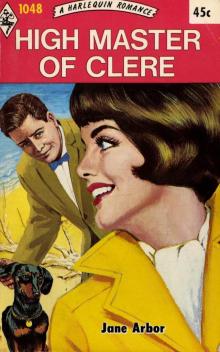 High Master of Clere
High Master of Clere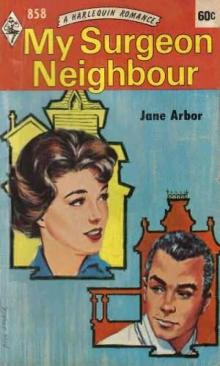 My Surgeon Neighbour
My Surgeon Neighbour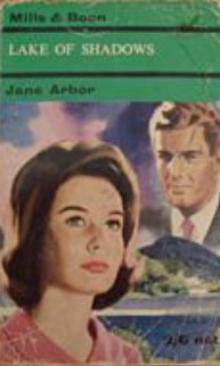 Lake of Shadows
Lake of Shadows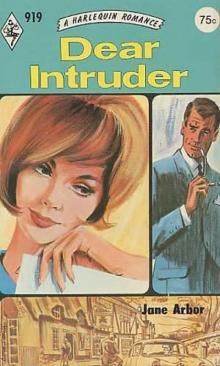 Dear Intruder
Dear Intruder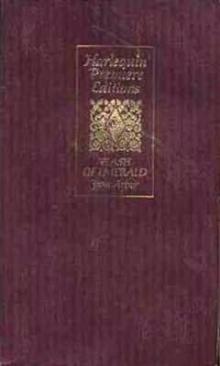 Flash of Emerald
Flash of Emerald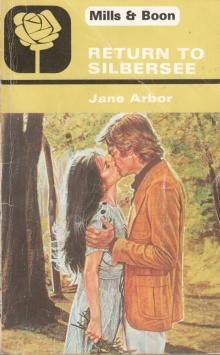 Return to Silbersee
Return to Silbersee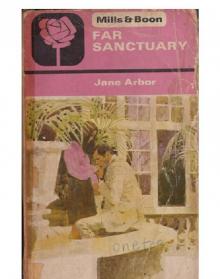 Far Sanctuary
Far Sanctuary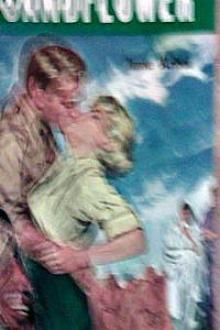 Sandflower
Sandflower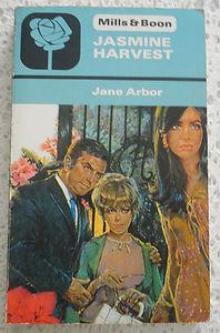 Jasmine Harvest
Jasmine Harvest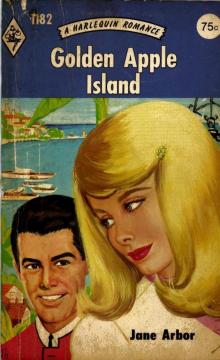 Golden Apple Island
Golden Apple Island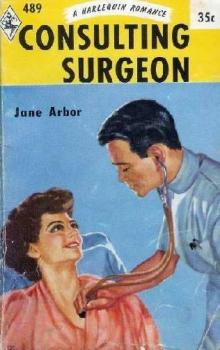 Consulting Surgeon
Consulting Surgeon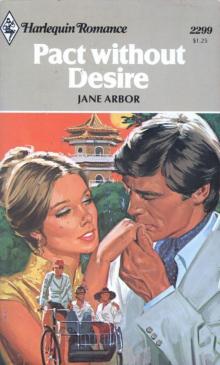 Pact without desire
Pact without desire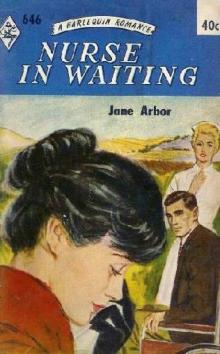 Nurse in Waiting
Nurse in Waiting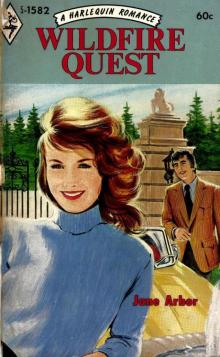 Wildfire Quest
Wildfire Quest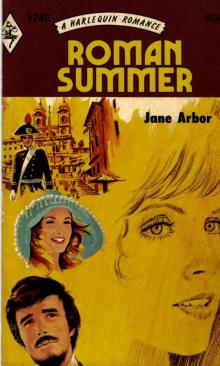 Roman Summer
Roman Summer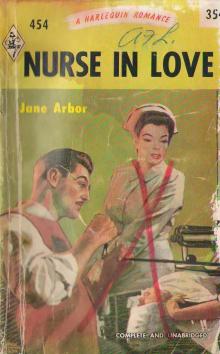 Nurse in Love
Nurse in Love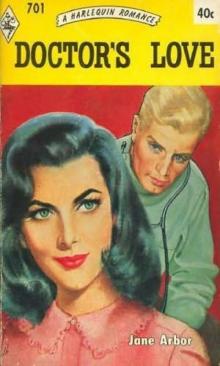 Doctor's Love
Doctor's Love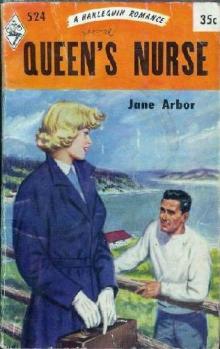 Queen's Nurse
Queen's Nurse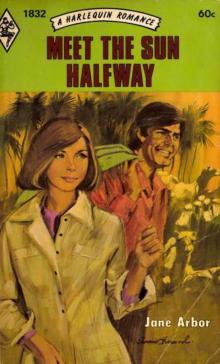 Meet the Sun Halfway
Meet the Sun Halfway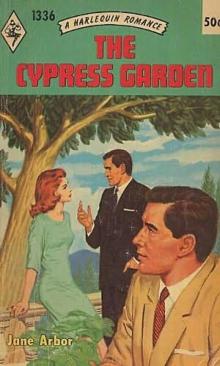 The Cypress Garden
The Cypress Garden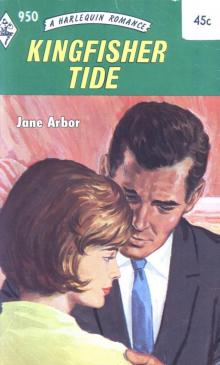 Kingfisher Tide
Kingfisher Tide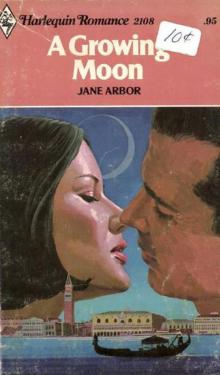 A Growing Moon
A Growing Moon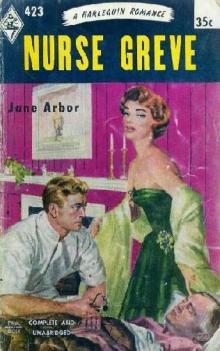 Nurse Greve
Nurse Greve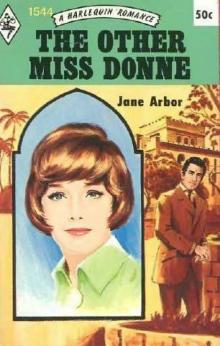 The Other Miss Donne
The Other Miss Donne